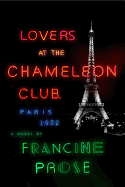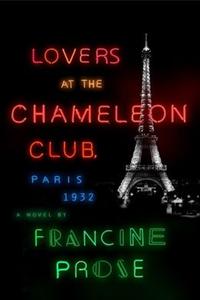

Prose's novel follows the life of Lou Villars, a cross-dressing lesbian "born into the wrong life," tracing her downward spiral from successful young athlete and racecar driver to German spy and torturer. Lou sees herself as a modern Joan of Arc, but at critical moments in her life she suffers bitter disappointment or loss, finally leading her, in 1936, to a seat next to Adolf Hitler at a Berlin dinner table, where her fate is sealed.
While Lou's story is certainly an engaging spy thriller, through it Prose also delivers a thoughtful reflection on the "mystery of evil," as described by the sympathetic biographer whose account of Lou Villars's tragic life forms the novel's spine. Prose's expert touch renders each narrative voice distinct and vital: the biographer's chronicle of Lou; the collection of memoir excerpts (most entertaining among them that of Lionel Maine, a bawdy, cynical American journalist); and the letters of Gabor Tsenyi, the Hungarian-born photographer whose photograph of Lou and her bisexual lover gives the novel its title. Taken together, this chorus provides the depth, shading and variety that flow from narrators with widely differing reliability.
Prose's novel pulses with the heartbeat of real life, brimming with colorful characters as artists (including, notably, Pablo Picasso), petty forgers, Nazis and resistance fighters meet on the page. Though she originally conceived of the book as a work of nonfiction about Lou's real-life counterpart (racecar driver and Nazi spy Violette Morris), Prose abandoned that plan to give herself the inventive freedom fiction affords. Still, her careful attention to setting and period detail brings Paris and the chaotic World War II era to life. Over the course of the novel, the city, which qualifies as a character itself, moves from a place bursting with libertine energy in the prewar period to a nightmare existence under Nazi occupation after 1940.
It would be unfair to pigeonhole this novel into a particular genre, because its appeal so artfully blends multiple styles. It is a testament to Prose's considerable talent that she's able to execute such an ambitious work so flawlessly. --Harvey Freedenberg
Shelf Talker: Esteemed novelist Francine Prose has created a fascinating character study of a cross-dressing female racecar driver turned Nazi spy, inspired by a real Frenchwoman.

